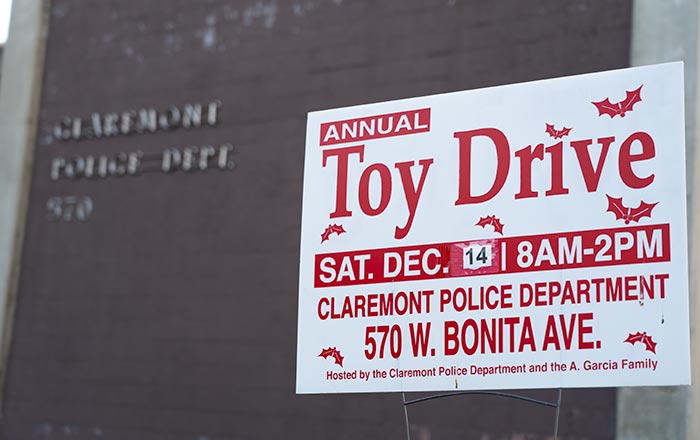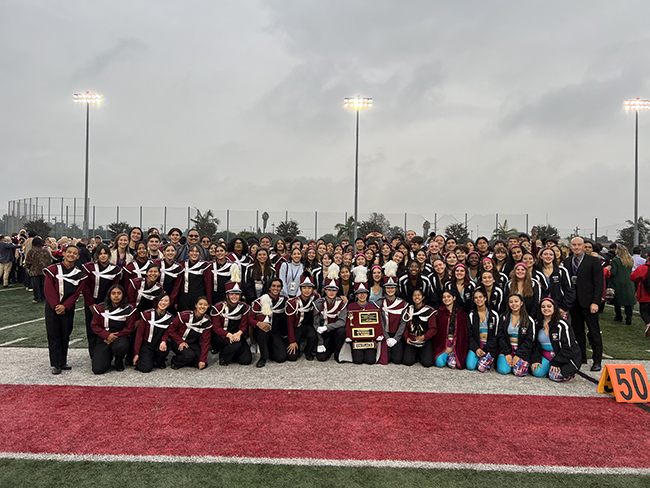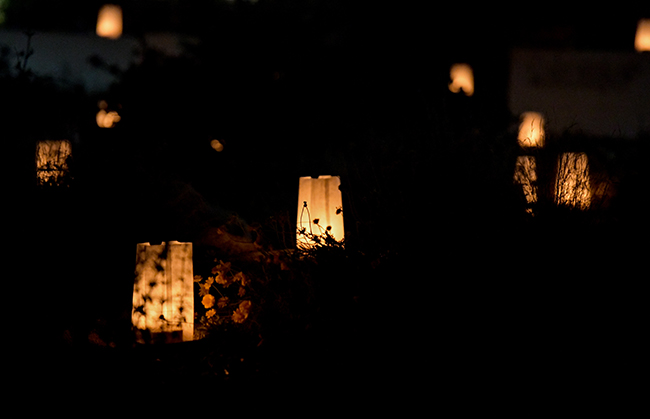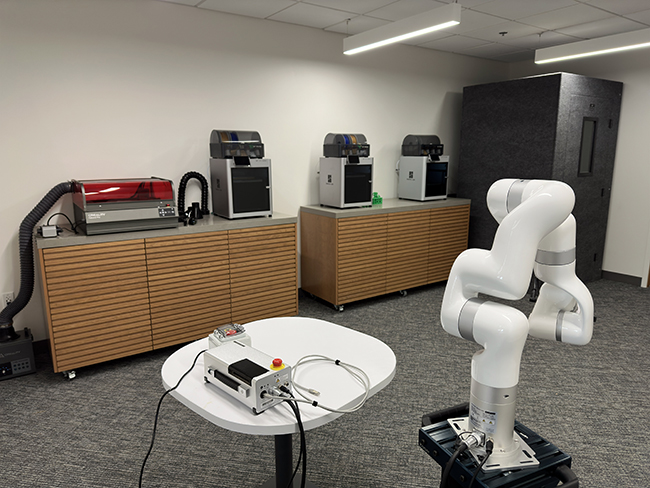Claremont community opens door to Syrian refugees
Mostafa Kanjoe says he enjoys the quietness of his new home in Pomona.
The Syrian refugee and his family, who were on hand during an interfaith meeting at the Islamic Center of Claremont in Pomona on November 25, have been through a lot before arriving in the United States on September 2.
Congresswoman Norma Torres was also at the event, meeting privately with the Kanjoe family and the Wawieh family, who also fled the war-torn nation and waited over a year to arrive in America. In her speech, Ms. Torres compared the plight of the families to her own experiences fleeing Guatemala when she was just a little girl.
“That little girl that came to the US would have never imagined herself as a member of the US House of Representatives,” Ms. Torres said. “That is the America that I stand to defend today in Congress—the America that does not turn its back on the most vulnerable communities around the world.”
Mr. Kanjoe and his family are originally from Homs, a Syrian city that has been almost completely destroyed by violence in the country. According to Mahmoud Tarifi, a spokesperson for the Islamic Center, Mr. Kanjoe was thrown in prison for 45 days after participating in demonstrations. He fled to Jordan, where his family joined him months later.
The Kanjoe family arrived in the United States in just over two months ago. Mr. Kanjoe said through a translator that his children are adapting well to their new home.
“They are okay, they love this place,” Mr. Kanjoe said of his two daughters, one of whom, Mays, is attending Harrison School.
Fouad Wawieh and his family are originally from Duma, a suburb of Damascus. He escaped the country by first going to Lebanon and then settling for a time in Egypt, where he worked as a butcher. His family is still living in a motel in Pomona, but will receive housing soon through the Claremont Interfaith Council (CIC).
Both families are currently enrolled in ESL classes, and Mr. Kanjoe has already found work in Fontana as a carpenter, which was his profession in Homs before he fled.
Leaders and representatives from early every faith in the area were present at the center in support of the refugees.
“This is really something that we cherish a lot, as part of this community, to have the support and the level of encouragement from all of interfaith gatherings in support of the new families,” said ICC President Bassam Badwan.
Jerry Fenning of the CIC said that many local leaders donated good and services to the refugees within 24 hours of receiving their wish list.
“We want to say, welcome to your new home in America,” Mr. Fenning said. “We will live in peace together.”
Other local leaders stressed the importance of coming together as a community to help those who are escaping war-torn countries.
“It gets the word out that peace is the only answer,” said Kelligrace Kurtz, who is a priest at St. John’s Episcopal Church in La Verne. “Peaceful people are a lot quieter than agitated people, so we have a lot of work to do.”
Paul Buch, the Cantor at temple Beth Israel, compared the plight of the Syrian refugees to Jewish people fleeing the rise of Hitler’s Nazi regime.
“We as a community can reflect back not too long ago when the refugees from Europe were fleeing Nazism, who were turned away from almost every country in the world, including the US,” Mr. Buch said. “When we have an opportunity to do something and se something that’s being done to people who through no fault of their own are forced to flee their homes in fear and terror, we know exactly where they’re coming from.”
Ms. Torres recently voted against a bill that would impose stricter background checks on Syrian refugees entering the country, a bill she says was “lacking in that American integrity.”
“Those are politics,” Ms. Torres said. “This is reality here—a community that embraces people when they want to come to the US. They want to participate in our culture and they want to live in peace just like the rest of us.”
—Matthew Bramlett
news@claremont-courier.com











0 Comments